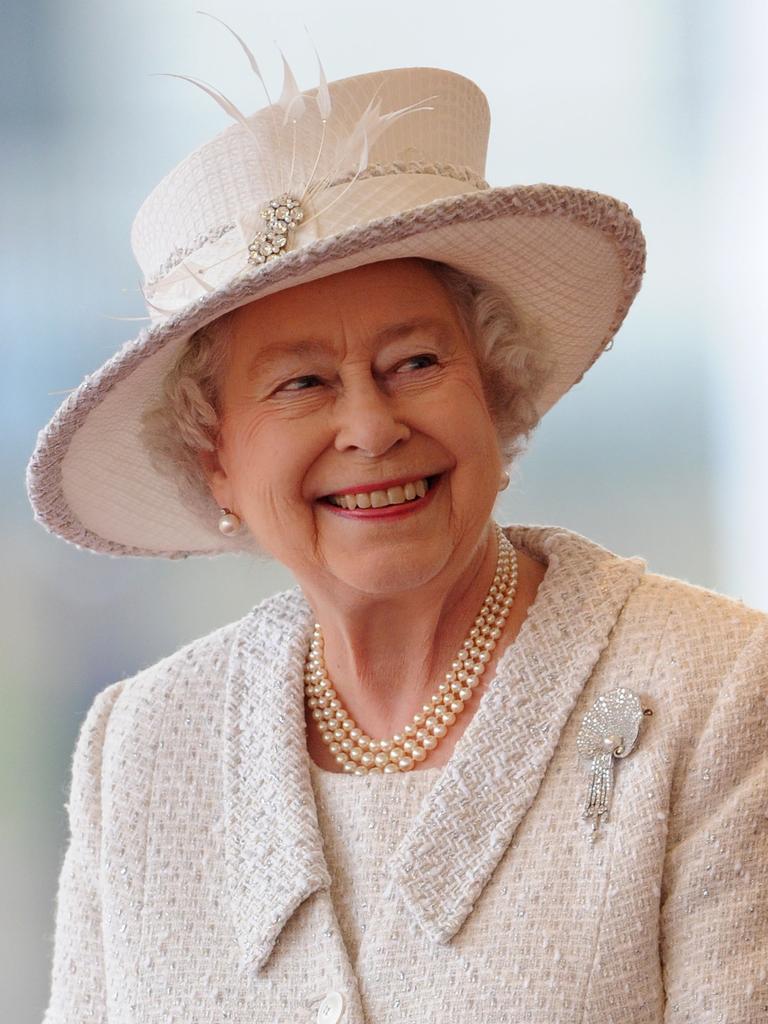How to explain to your child the Queen’s death
Grief is often tricky, especially when it comes to explaining it to little ones. This is how to handle your children’s questions about the Queen’s death, writes Judith Locke.

Opinion
Don't miss out on the headlines from Opinion. Followed categories will be added to My News.
The loss of our beloved Queen will hit many people in many different ways. Some will be hugely impacted, some not so. Some will want to talk about it, others will quickly move on to the next topic.
Grief often gets tricky. Everyone has a different reaction, and when we chat about such a momentous event, we discover that everyone feels differently.
But we must be careful. We can’t make judgment on the quality of someone’s empathy or wisdom because the way they react doesn’t mirror our own. This is particularly true when dealing with children’s reaction. So, what can you do to ensure you do it right?
Most conversations, on topics like this, are started with a conversational bid by making a comment. At a time like this, many will say something like, ‘Did you hear about the Queen?’
Or they may express an emotion, such as, ‘I feel sad about the Queen.’

Remember that this is their way of forming a connection and you want to react in a way that is positive. The easiest way to keep up the connection is to agree with them, ‘Yes, it is a really sad day.’ Even if you don’t feel the same way, there are things you can say so that the interaction remains positive. You might try a neutral statement, such as, ‘Yes, many will be really feeling it today.’
Don’t react negatively. ‘I’m not a monarchist at all’ is shutting them down and risks them stopping talking to you. It puts an immediate halt to a conversation they tried to start. It also risks them feeling a little embarrassed about saying what they said. You must meet them where they are. Even saying something like, ‘It’s a sad moment for you?’, lets them feel heard and gives them a chance to keep talking.
At some point in the conversation, you might share your different reaction, but only if it is right and doesn’t risk showing a lack of respect for their feelings. Generally, more care needs to be taken with the upset person, and you can share your lack of reaction later to someone who might agree with you or not take your reaction personally.
Parents might want to take away the feeling that is causing their child difficulty, in what they see as an act of care. Even friends might do this, by saying something like, ‘Well she had a good, long life.’ I understand that this is often with good intentions, but it makes the conversational bidder not feel heard.
Stay in the moment as long as they need, to process it properly. Demonstrate comfort with their reaction, and don’t try to take it away immediately with a promise of going for doughnuts or moving the conversation along to nicer things. Show them that you both can do hard things and feel difficult emotions.
Remember that people’s reaction to an event like this is sometimes a kind of a litmus test for how they are feeling in general. A strong reaction might also mean that other things are troubling them too.
Keep checking in with them to see how they are doing. Not necessarily by continually bringing up the topic, but by just being around. Often doing things together will help evolve conversation. Try cooking a meal together, or go on some sort of walk or drive, to open communication up a little.
Give them a few days, and if they are still upset then make more deliberate moves to pivot them into a more positive direction. Now’s when you mention the fact that the Queen lived a good life of service and dignity, or to help them see her life in a much larger, more uplifting way.
One way to help children to process grief is to do something that makes them feel they are helping. Younger children might want to write a condolence card for the royal family. Even watching the funeral together might make them more able to progress through their feelings.
We can’t spend yesterday asking people ‘RUOK?’ and then spend the days after dismissing other people’s feelings about the loss of someone they see as important in their lives. Meet them where they are, hear them, help them feel supported. Should their reaction go on a little longer than is good for them, gently move them to a place where they can move on a little and get back to their normal life, not consumed by anguish.
Most importantly, at this time, let us all mimic the dignity and graciousness shown by our Queen for over 70 years. Let us all continue to be guided by her example.
Judith Locke is a clinical psychologist and former teacher
Originally published as How to explain to your child the Queen’s death






